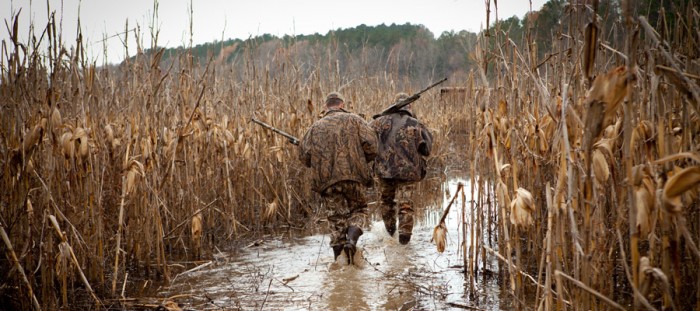We recently received an email from a friend inviting us to check out the short film “Sky Game.” Shot in 1939, “Sky Game” highlights the conservation efforts of the McIlhenny family (think: Tabasco) on their Avery Island in the South Louisiana marshes and bayous.
Depicting a campaign to tag and track migratory ducks, the film demonstrates how the family kept tabs on the migratory behavior of the flocks. The tracking also provided a census used to determine annual game laws. Watching the film, we couldn’t help but notice that many of the conservation ideals espoused in this film mirror those of today. (Though, the attire worn by today’s conservationists and outdoorsmen and women has certainly changed.)
Today, Avery Island is a wildlife paradise that is home to thousands of plant and animal species. One species of note is the snowy white egret. Beginning with a population of just eight young egrets, the McIlhenny family raised the egrets in captivity and then released them to migrate across the Gulf of Mexico. The birds returned to the Island the next spring, along with others of their species. Today, thousands of snowy white egrets return each year to the Island’s bird colony, now called Bird City.
Another fine example of a conservation property is The Fork Farm and Stables. At its focus, The Fork boasts a world-class equestrian center. Having played host to the 2008 Olympic equestrian trials for the U.S. team, The Fork is a household name in the equestrian world. With its working competition barn, two all-weather arenas, a cross-country course, and plenty of facilities for camping, The Fork has successfully established a field sport-oriented program that provides the means to preserve the property for the foreseeable future.
What makes The Fork different, however, are the steps the owner has taken to develop additional programming to further ensure the Fork’s future. Recognizing that The Fork could only be truly sustainable if it had the economic resources to support its operation, Field Sport Concepts worked with the owner to identify additional opportunities presented by the land. These include the development of shooting facilities, protection and expansion of habitat for upland bird species, preservation of aquatic habitats for fishing, the establishment of hiking trails, and agriculture.
We are firm believers that such a multifaceted approach to preserving the environment around us is the best way to ensure the long-term viability of rural property. By pursuing a range of compatible programming opportunities, landowners and guests have the ability to enjoy an array of activities, thereby deepening a relationship with the environment. Further, the additional income generated from these activities can come from user fees, government subsidies and tax incentives, or other revenue sources. Such an array of funding sources provides the landowner with options for establishing programming based on his or her goals for the property. The revenue itself can supplement one’s income or can be reinvested in the property’s natural resources and facilities. In other words, as is the case with The Fork, the multiple revenue streams preserve the economic viability of the land and thus ensure its long-term sustainability.
Whether you are looking to protect the family farm, establish a family retreat, or develop a field sport-oriented residential community or resort destination, our multi-disciplinary team of affiliates has the expertise and the experience to help you realize your vision for your land.
And, make sure to check out the short film “Sky Game”.

